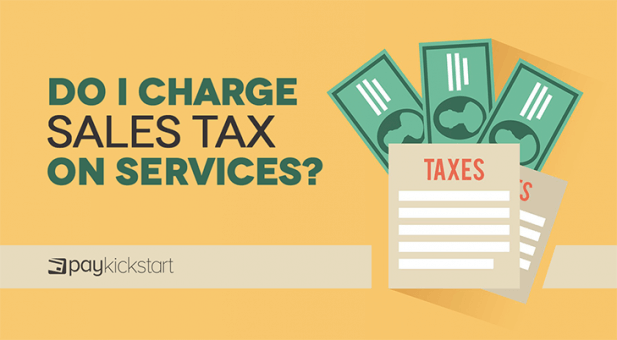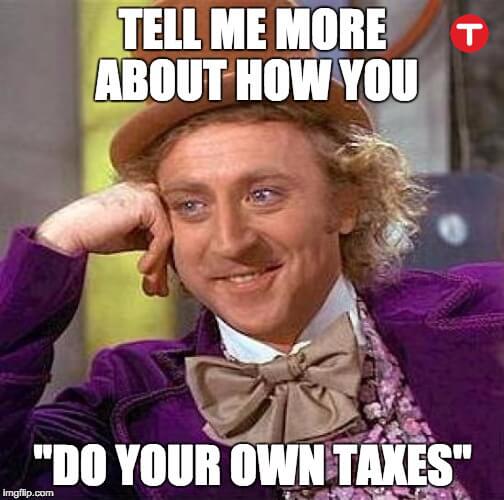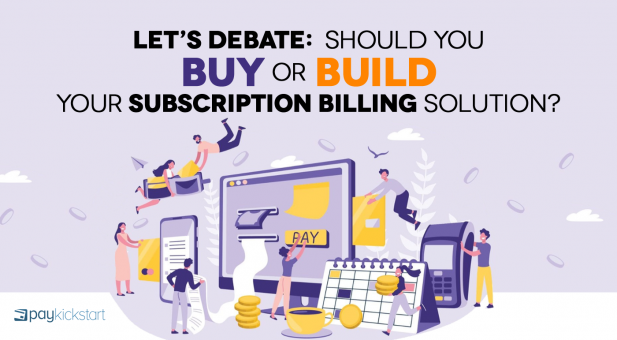Subscription growth hack (by PayKickstart)
Facebook Group - 3,932 members
Visit Group
The only two things that are sure in this life are death and taxes. With recent advances in technology, I’m not so sure about the death part.
Sales tax on services and products is one of the largest sources of revenue for states and plays a critical role in keeping essential infrastructure running.
If you don’t pay or help collect these taxes then you’ll run into problems sooner or later. With the ever-widening budget crunch, items that were previously exempt are now being taxed.
Sales tax on services has expanded and it’s important to know if you’re liable to collect it.
In this article, I’ll give you a high-level overview of what sales tax for services entails and the types of services that are eligible for taxation. Please note: This article is purely informational and is not a substitute for tax advice from a qualified and registered professional.
Unfortunately, there’s no one size fits all answer to this question. It depends on a lot of factors. In many states, you can provide services without a sales tax liability. This exclusion also covers any property or equipment included in the service you offer customers.

In other states, the same service will incur a sales tax and the equipment supplied may incur a separate tax.
It’s important to note that if your service is an add-on (also known as an incidental) to the equipment then you’ll be liable for sales tax.
For example, if I were to buy a ducted air conditioning system then it would need to be installed. That installation would attract a separate fee but without the air conditioning, it would be useless. In this case, the service is incidental to the equipment and may attract sales tax.
If I were to hire a plumber to repair leaky pipes in my house, they may need to change a few of them. The pipes they replace would be incidental because I called them for a service. I didn’t call them to buy pipes. The equipment was necessary for them to fulfill their service obligation.
Another example would be a visit to the dentist. While there, you may have a filling or a crown done. Though they used materials to make this possible, you’re paying for the services of the dentist and the materials used are just a byproduct of that.
Many states exclude service businesses from sales tax altogether while others such as Hawaii, New Mexico, and South Dakota have a blanket tax on all services provided.
As you can see, it can be difficult to determine whether or not you should collect sales tax on services you render.
One of the most confusing aspects is whether or not paying for your service is perceived as payment for a product. If it’s seen as a product (the equipment or incidentals used) then it’s liable for sales tax.
That’s where the true objects test comes in.
When you provide a service that comes with taxable and nontaxable business activities or products it’s known as a “mixed transaction.” The true object test helps you determine whether the taxable product or the untaxable service is incidental.
In essence, you ask yourself what the true object of the transaction is.
For example, if you were to go to the computer shop to get an SSD hard drive, a new microphone, upgrade your video card, and add a new keyboard some of those things would need to be installed.
What do you think the true object of the transaction is – the installation or the hardware itself? In this case, it’s the hardware which is taxable.
Conversely, if someone were to break their arm and go to the doctor’s office what happens? The doctor would order an x-ray and once they knew what kind of fracture it was they’d set the bone.
The x-ray and plaster of paris used in the course of service delivery are incidentals but the true object is the service provided by the Doctor. Unless, of course, you want to hang an x-ray image on your wall.
Many industries – like financial services – use many incidentals in order to deliver the final product. But, that doesn’t mean it’s taxable. If the taxable portion isn’t the true object of the transaction then it may be exempt from sales tax.
Keep in mind that technology, digital goods and services especially, have made it increasingly difficult to apply the true objects test.
In 2010, the Missouri Supreme Court ruled on the case of Western Blue Print Co. VS Director of Revenue. Western Blue Print scanned paper documents for their customers, digitized them, and provided the files on a CD.
The director of revenue argued that the object of the transaction was the CD containing the files. Western Blue Print argued that it was the service people were paying for because the CD was just incidental and the documents could as well be delivered via a link, USB drive, or any number of mediums.
The Missouri Supreme Court ruled in favor of Western Blue Print because the object of the transaction was the service provided.
It could have gone either way which is why you need to do your due diligence to find out if you’re selling a taxable service.
Keep in mind this isn’t a comprehensive list and may vary from state to state. Use it as a starting point and dig deeper to understand your specific situation.
This is taxed just like sales of tangible personal property (TPP). TPP includes cars, phones, furniture, etc. If your phone breaks and you get it repaired then the service will incur a sales tax. Repairs to your car, carpentry work, etc. all fall under services to TPP.
This is work done on buildings and land. It’s liable for sales tax on services rendered. An example would be landscaping work, janitorial services, or home improvement.
Business services are wide and varied. Most of them incur a sales tax. It includes but is not limited to call centers, marketing consulting, credit reports, background checks, extermination, etc.
A service performed for you as an individual will incur sales tax. These services include manicures, haircuts, massages, animal grooming, etc.
This can be dicey. Though healthcare professionals aren’t considered personal services, they are professional services. Accountants, investment advisors, attorneys, and other professionals fall under this category.
Yes, nothing good ever comes free. There are taxes on services such as clowns appearing at your kid’s birthday party and booking a band for an event.
Taxes are an inevitable part of doing business but it’s important to know when you’re liable for tax and when you’re not.
For services, it can be especially tricky because each state has its own set of rules.
If you’re in doubt or your state doesn’t have clear guidelines then perform the significant objects test to get a clearer idea.
In the end, your attorney or accountant is your best friend in a situation like this.
Let me know what you think about sales tax on services in the comments and don’t forget to share.
Daniel Ndukwu is a regular contributor to the PayKickstart blog. He has extensive experience with online businesses, conversion optimization, and subscription revenue models. When he's not writing insightful content, he works with other entrepreneurs to help them grow their bottom line.
Read More About Daniel Ndukwu